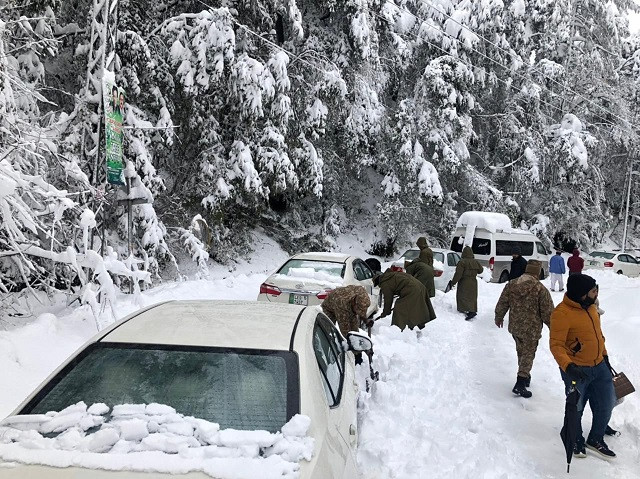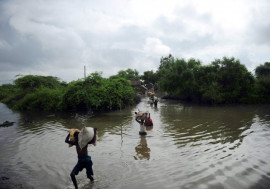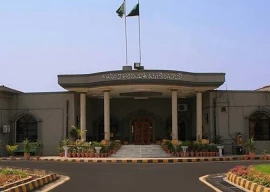
Murree, known as the 'Queen of Hills, is a top tourist spot in Pakistan, celebrated for its stunning scenery, temperate climate, and beautiful landscapes.
Established by the British in the mid-19th century as a hill station, it combines historical charm with modern appeal, attracting thousands each year with its breathtaking views and cool mountain air. Yet, beneath this picturesque exterior lies the hidden reality of daily struggles faced by its residents.
The influx of tourists brings numerous challenges. Despite the town's allure, Murree faces significant issues due to environmental stress. The natural beauty that attracts visitors is threatened by waste and pollution from their visits. Increased footfall leads to littering, soil erosion, and damage to local wildlife and vegetation. Local authorities often struggle to balance preservation with the demands of tourism, despite efforts to manage waste and conserve resources.
Traffic congestion is another major issue. The town's infrastructure, designed for a smaller population, struggles to handle the high volume of vehicles during peak seasons. Narrow roads become clogged with buses, private vehicles, and transport trucks, causing frequent delays and worsening air pollution. This congestion affects daily commutes, increases the risk of accidents, and diminishes the quality of life for Murree's residents. There is also a risk to the town's cultural heritage. The long-standing customs and traditions of Murree face the threat of being overshadowed by tourism-driven economic interests. Businesses often prioritise visitor preferences over local cultural practices, which undermines the town's unique identity and makes it harder for residents to maintain their traditions.
Locals have shared their daily struggles with APP, urging authorities to acknowledge and address their concerns. Waqas Waheed from Barian, Masot, notes, "Traffic jams are a big problem. Tourists parking on the roadside create severe congestion, which can be risky, especially in emergencies. Additionally, the lack of public toilets on the route from Pindi to Murree leads to littering and environmental issues. Awareness needs to be raised, dustbins should be provided, and regular monitoring is essential."
Hifza Sajjid from Rawat, Murree, adds, "Students are most affected by traffic jams, which disrupt their studies and delay their return home. The congestion not only wastes time but also contributes to air pollution, impacting academic performance and health."
In Misyari Town, Hafiz Zafar, a salesman from Islamabad's Aabpara market who spends weekends at home, faces major disruptions during peak tourist seasons. "During Eid and 14th August, hooliganism by irresponsible tourists becomes a serious issue," he says. "The loud gatherings and reckless behaviour shatter our peace, making it hard to enjoy any quiet.
For my ailing parents, the constant noise and chaos right outside our doorstep are particularly distressing, as they find it hard to relax in their own home." Azhar, a traffic police officer, says, "During busy times like Eid, traffic officers are everywhere to manage the crowds. We ensure everyone follows the rules and guide tourists to ease traffic flow. With more officers and clear signage, we effectively manage the large influx of tourists and keep traffic moving smoothly."
Professor Naseer Memon, an expert in climate change and natural resource management, advocates for sustainable tourism in Murree. He stresses the importance of educating tourists on eco-friendly practices, such as avoiding plastic, marking eco-sensitive areas, and preventing forest fires caused by activities like open cooking. Memon supports forming eco-volunteer groups and collaborating with stakeholders to create a sustainability plan and promote responsible behavior.
Professor Dr Muhammad Ismail Kumbhar, Director of University Advancement and Financial Assistance at Sindh Agriculture University Tandojam, underscores the need to preserve Murree's cultural heritage while supporting sustainable tourism.
He suggests documenting and conserving historical sites, involving local artisans in tourism, and developing cultural tourism packages. Dr. Kumbhar also calls for regulatory measures to curb over-commercialization and environmental degradation, and for educating both tourists and locals through programs and workshops.




1725369967-0/Untitled-design-(10)1725369967-0-165x106.webp)



















COMMENTS
Comments are moderated and generally will be posted if they are on-topic and not abusive.
For more information, please see our Comments FAQ